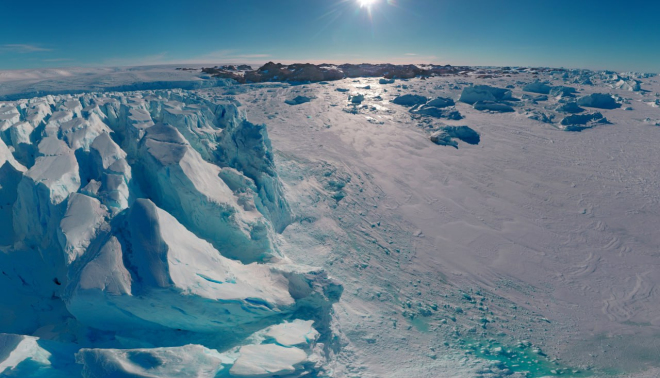

The Arctic and Antarctic Research Institute has reported that unprecedented heatwaves have become more frequent in Antarctica in recent years. Additionally, record temperature increases have been observed. These phenomena are a result of global climate change. Experts emphasize that the impact of warming on the ice sheet of the sixth continent has far-reaching regional and global consequences.
According to the institute's data, the average temperature on the continent has increased by approximately 0.05°C since 1957. However, West Antarctica has warmed by more than 0.1°C per decade, while the open part of the Antarctic Peninsula has warmed by 3°C since the mid-20th century. At the same time, East Antarctica experienced cooling until recently.
"One of the reasons for the Antarctic heatwaves lies in the previously unseen penetration of vast masses of warm, moist air from lower latitudes, including Australia, deep into the continent," the report states. "However, the complete picture of the ongoing changes in the Antarctic atmosphere remains unclear."
Scientists suggest that the penetration of warm air currents deep into the Antarctic continent is caused by a complex of events: the melting of glaciers bordering the West Antarctic Ice Sheet, anomalies in the characteristics of the Southern Ocean currents, as well as other meteorological and oceanographic anomalies.
The most recent temperature record in Antarctica of 18.3°C was recorded on February 6, 2020, near the Argentine research station Esperanza on the Antarctic Peninsula. And this year, scientists recorded the highest winter temperature in the entire history of regular observations at the Vostok station. On August 6, 2024, the thermometer at the coldest point on the planet showed -34.2°C.
 Blogs
Blogs
